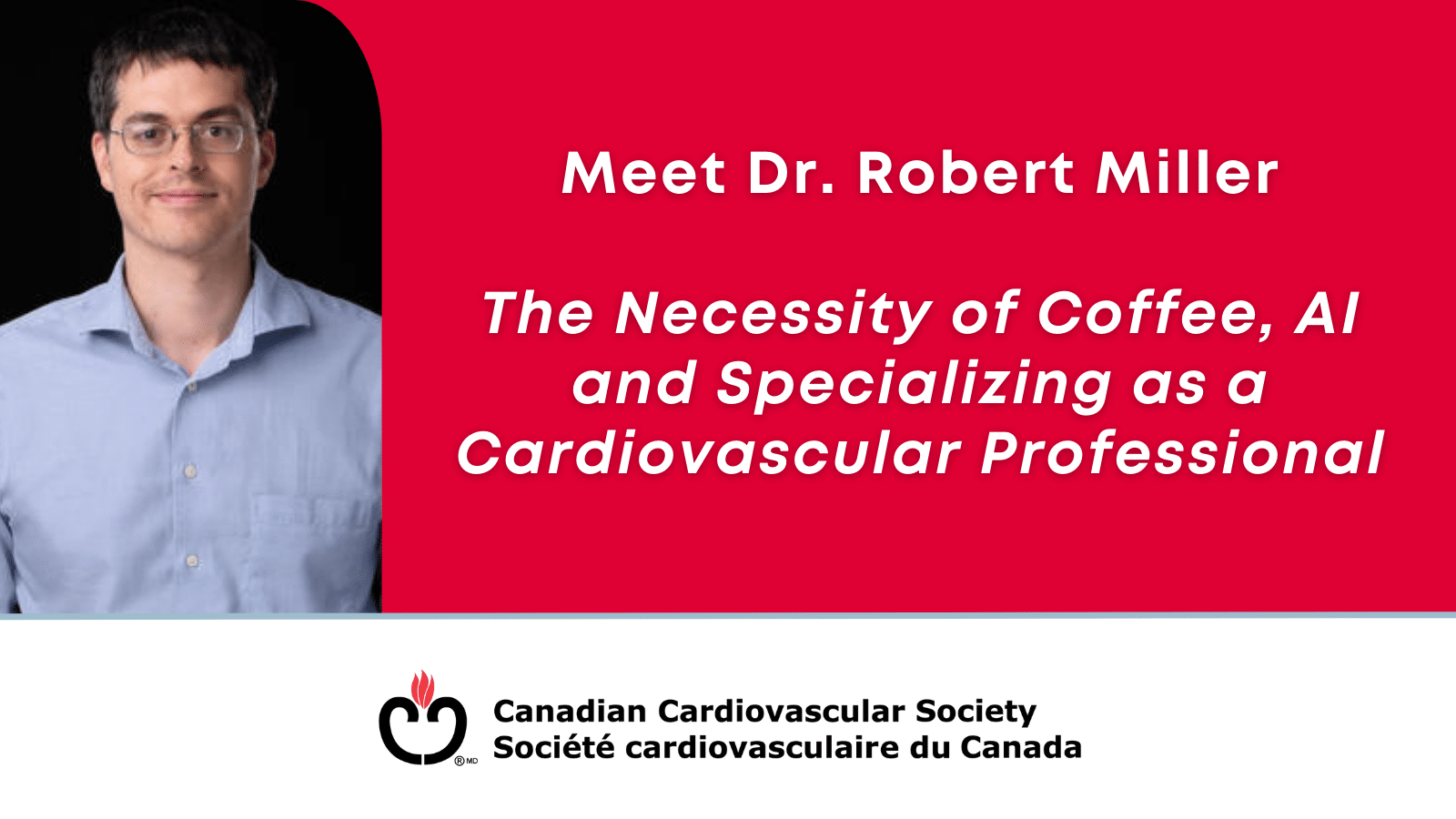
The Necessity of Coffee, AI and Specializing as a Cardiovascular Professional
Dr. Robert Miller is a Clinical Associate Professor in the Department of Cardiac Sciences at the University of Calgary and is the Medical Director of the Nuclear Cardiology and Cardiac CT Program. He completed training in internal medicine and general cardiology at the University of Calgary, going on to complete training in advanced heart failure and cardiac transplantation at Stanford University, and advanced cardiac imaging at Cedars Sinai Medical Center. Dr. Miller’s clinical work also includes nuclear cardiology and cardiac CT, in addition to time at the Advanced Heart Failure Service and Cardiac Function Clinic. His research interests include advanced cardiac imaging applications in patients with cardiomyopathies and epidemiology in heart failure and cardiac transplantation. Dr. Miller is the current president of the Canadian Society of Cardiovascular Nuclear and CT Imaging (CNCT), a CCS Affiliate Society.
How did you become involved with CCS?
I started my involvement with CCS as a trainee member and I was always looking for ways to become more involved. There have always been lots of opportunities at CCS for trainees, but over the years there have been an increasing number of new opportunities for early career members. Getting involved is particularly critical during the early career stage because it allows you to quickly build a network of colleagues across Canada.
Can you share an example of one area you think cardiovascular care has most improved since you started your career?
I think cardiac imaging has advanced more rapidly than many other areas in cardiology. In particular, the technology underlying cardiac CT has improved to the point that it could be considered as a first-line test for patients presenting with chest pain. Similar advancements have occurred with PET, such that the technology is ready to be used outside of a few high-volume academic centers. Broader utilization of these techniques could help diagnosis of coronary artery disease and better target medical therapies for those who benefit most.
What has made the biggest impact on your career so far?
My time completing sub-specialty training has made the biggest impact on my career to date. Taking one or two years to truly become an expert in a specific topic is incredibly valuable. For me, this came in the form of training in advanced heart failure and advanced cardiac imaging. Clinically, this gave me the expertise required to be confident in the roles as I started as a staff Cardiologist. It was also critical to jump-starting my research career by allowing me to work with experts in the field.
What do you think should be a top priority for the Canadian cardiovascular community?
I think the Canadian cardiovascular community needs to proactively work towards integrating artificial intelligence. There are so many potential applications, but most of these solutions never move past initial testing. In particular, I think we need to look at ways to prospectively evaluate AI models during clinical deployment to ensure they are meeting the clinical need and continue to perform well over time.
What is one (non-sentient) thing you can’t live without?
Coffee. My life runs on caffeine and stopping for a cup of coffee is a good way to reset for 5 or 10 minutes before returning to my clinical work or research.
Connect with Dr. Miller on Twitter (X) at @robertjhmiller.
Other News
See AllCelebrating National Volunteer Week at CCS
April 18, 2024
CCS members have a diverse range of skills, experience, interests, and backgrounds. One common trait...
CCS News MembershipCCS Member Profile: Dr. Aaron Spooner
March 18, 2024
A second chance for patients through minimally invasive cardiac surgery, top tips for Trainees and...
MembershipNominate a Colleague for the 2024 CCS Recognition Awards
March 8, 2024
The CCS is proud to recognize members for outstanding contributions to the field of cardiovascular...
CCS Recognition Awards Membership